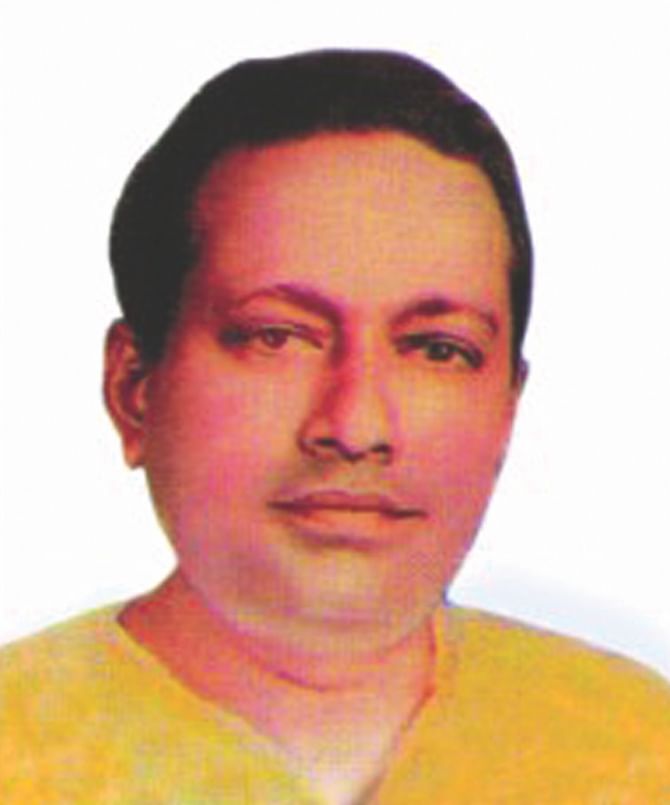Abdul Alim: A voice across time
Abdul Alim: A voice across time

July 27 marked the 83rd birth anniversary of legendary folk singer Abdul Alim. On the occasion, different socio-cultural organisations chalked out elaborate programmes. Members of Abdul Alim Foundation placed wreaths at the grave of the singer. Satellite TV channels aired programmes featuring life and works of the singer.
Abdul Alim (1931-1974) a brilliant folk singer possessed a melodious and gifted voice, which is yet to be surpassed by any other folk singer of our country.
He played an important role in popularising this genre of music. With such a life of achievement, it is unfortunate that his birth anniversary is observed unceremoniously and he is now almost a forgotten chapter.
Alim migrated from Murshidabad (West Bengal) to Dhaka after partition (1947), and joined the Dhaka Radio Station as a staff artiste.
From a very young age Alim's musical senses were honed from listening to gramophone records. By the age of 14, he had already recorded two songs for the company. While performing songs at the Alia Madrassa in Calcutta he gained immense popularity among connoisseurs of music.
In Dhaka, he took lessons from Ustad Mohammed Hossain Khosru for some time. During his career, he performed at a number of music conferences. At the All Pakistan music conference in Lahore, Alim was awarded five gold medals for his remarkable performances and contributions to music. He recorded songs for “Mukh O Mukhosh”, the first film to be produced in the erstwhile East Pakistan. Subsequently, he continued to record songs at a prolific rate.
Folk songs are inherent treasures of the riverine Bangladeshi culture. The songs express hopes and frustrations of the young hearts and uphold the life and culture of different regions. Bhatiali songs, sung mainly in riverine regions of Mymensingh and the low lands of Sylhet, are meant to replicate the energy and timelessness of the rivers that have been flowing from time immemorial.
People who have heard Alim's presentation of “Naiya rey nayer badaam tuila”, “Duarey aishachey palki”, “Premer mora jole dobe na”, “Holudia pakhi shonar boron” and countless other songs will find it difficult to forget his artistic skills.
He recorded over 300 Gramophone records and sang playbacks in over 100 films. He won the National Award (1974) posthumously for playback in “Shujan Shokhi” directed by Khan Ataur Rahman.
With deep penetrating eyes, Alim was a man of simple habits. Popularity never drove him into illusory glamour.
Folk songs are so central to our culture that it seems a shame that the works of such artistes as Abdul Alim are not readily available to the listeners. Many countries put in rigorous work to preserve their national treasure of songs, either by reprinting, editing, re-making (with new artistes); in comparison we seem happy to exile our artistes to footnotes.